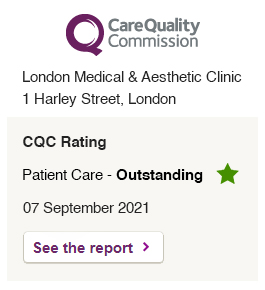In regular times, our persistent optimism wins us friends and provides us with a lot of benefits, including greater levels of wellbeing, solid resilience and better health. Now, things are very different.
During a pandemic, we need to act as though it’s likely we will get COVID-19 in order to keep ourselves safe and avoid spreading the virus to others. Research shows that, whether we are mostly optimistic or pessimistic it can have a huge effect on our wellbeing.
It seems logical that focusing on what is working can lead to more positive emotions and increased satisfaction with our daily life. The dark side of optimism In a pandemic, optimism has a dark side.
In situations where danger is present, excessive optimism which sometimes called irrational or unrealistic optimism can have severe negative consequences, as what is normally a strength of optimists taking some risk becomes a dangerous weakness. Because we believe that things will work out well even where there is little evidence to support this perspective, we tend to minimise risks, underestimate costs and ignore warning signs. We might misjudge our vulnerability to COVID-19, believing without justification that we are less likely to catch it.
We also might be less cautious when walking into crowded spaces and less motivated to obey restrictions. Even when we catch the virus, we’re more likely to believe that it is “just a cold” and so more likely to continue going about our daily routines. By doing this we are putting ourselves and others at risk and the consequences can be fatal.

Therefore we have to moderate our optimism and those who are very optimists need to rein themselves in a bit during this crisis. A good way to check if we are being excessively optimistic is to ask ourselves: what evidence do I have to support my prediction? If there isn’t any basis for our assumption that, for example, we won’t get coronavirus by entering a closed, crowded space for a long time, we should think about changing our behaviour.
Another important strategy is to compare our predictions to what experts, scientists and telling us. According to the theory of “optimistic explanatory style”, an optimistic response arises when a person believes that a negative event is external, caused by someone or something else, that it is unstable, and that it is local. So it would be helpful for us to challenge our thinking and ask ourselves to what extent are the current restrictions about us versus other people and how long is the pandemic likely to be with us?
As optimists, our natural inclination is not to spend too much time on questions like this. But if we want to moderate our optimism, we must set aside time to think about these things and discuss our ideas with others.
In ambiguous situations, optimists tend to gravitate towards the most positive interpretation of the rules. In situations where confusion reigns due to constantly changing regulations, we will come to our own conclusions. When rules come with exceptions, we will assume that these exceptions apply to us. If tight restrictions are eased, as they were over summer in many places, optimists start believing the risk has subsided and the crisis will soon be over. But as we have seen subsequently, that initial optimism has led a second wave, with many local regions and entire countries heading back into various forms of lockdown.
So rather than continually changing the guidelines, sendingmixed messages about the level of risk and imposing different rules in different regions, governments should put out explicit and unambiguous regulations that are consistently applied if they want to influence the behaviour of optimists. For optimists, the question now is how we can benefit from our tendency towards seeing the upside of life while minimising any risk to ourselves or others.

It is important to retain our generalised optimism that we will be able to overcome this challenging time and remain positive as we do so. At the same time, we should intentionally seek other perspectives and talk to others about our automatic responses to the pandemic.
We must dedicate time to weighing up the risks and consequences of our behaviour without being drawn into extended rumination or falling into pessimism. If we can do this, we can be cautiously optimistic that we can protect ourselves and others while bringing positivity and hope to our societies.





